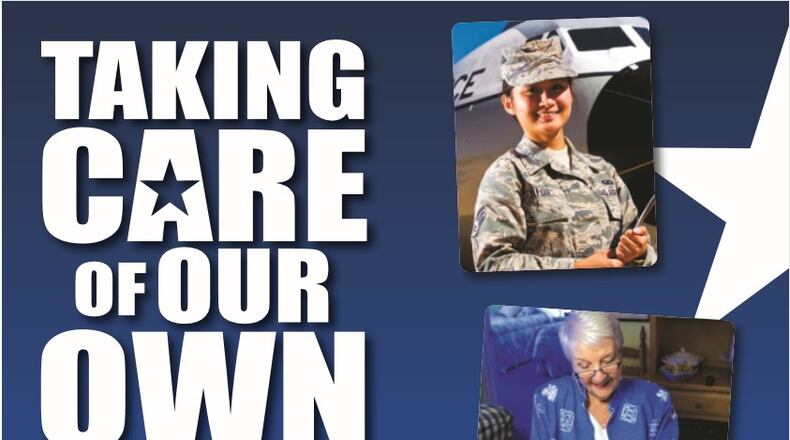Lt. Col. William Holl, installation project officer for Wright-Patterson Air Force Base’s 2020 AFAF campaign, answered the following questions so the base community could learn why the campaign is so important.
Of the AFAF’s four charities, which one directly benefits Wright-Patterson AFB Airmen?
Holl: The Air Force Aid Society Fund, one of the four AFAF-affiliated charities that assist active-duty, Reserve, Guard and retired Air Force personnel and their families, "is the one that provides for Airmen in times of need, often administered by the staff at the Airman and Family Readiness Center. Many Airmen — 267 recipients — at Wright-Patterson AFB benefited from AFAF contributions last year, to the total of more than $161,000.
What are some of the circumstances in which the Air Force Aid Society Fund has aided Airmen?
Holl: During my career I've seen Airmen needing AFAS Fund assistance with basic living expenses like food, shelter, utilities and more; vehicle expenses like repairs, insurance and payments; emergency travel expenses for funerals; and child care costs. I've also seen grants awarded for Airmen's education so they could better themselves and better serve the Air Force mission.
The campaign was just extended to May 8, past its original end date of April 10. Can you tell us more about that? And what is the goal?
Holl: Due to the current situation with COVID-19 and its effect on personnel and their family members, the campaign was extended until May 8 to allow more time to conduct it. With so many people teleworking now, the campaign is essentially being run via email. We hope to meet or exceed Wright-Patt's AFAF campaign goal of $107,346, which is only 11% of the base's calculated potential.
What are the AFAF’s charities?
Holl: Airmen have the option to donate to one or more of the four AFAF charities: Air Force Villages Charitable Foundation, Air Force Aid Society, Air Force Enlisted Village and the LeMay Foundation.
Military members may contribute but what about civilians?
Holl: Civilians cannot be solicited for donations but are invited to contribute. Civilians who wish to contribute to AFAF should contact their unit project officer. All who wish to participate need to contact their UPO for a control number.
With social distancing and teleworking, can people still give?
Holl: The AFAF campaign is offering e-giving this year via texting AFAF to 50155 or scanning a QR code from one of the many posters on base. Members can opt for payroll deduction or a one-time gift online. One note: E-giving payroll deduction starts immediately and may overlap the previous campaign, which ran from June 1, 2019, to May 1, 2020, resulting in two deductions per pay period until May 1 this year.
Are there any other ways to give?
Holl: Due to the current situation and social distancing, cash and check donations are no longer being accepted. In lieu of e-giving, donations to the AFAF can also be made by payroll deduction by completion of a PDF form provided by unit project officers. Donors are encouraged to contact their UPO for a control number first.
How can donors get more information?
Holl: For more information, first contact a unit project officer. The installation project officers are Lt. Col. William Holl, AFAF installation project officer, 937-257-3424, william.holl@us.af.mil; Senior Master Sgt. Michael Stegen, 937-528-2929, michael.stegen@us.af.mil; and Master Sgt. Ashely Fuquay, 937-255-3491, ashely.fuquay@us.af.mil.
Additional information on AFAF is available online at www.afassistancefund.org .
About the Author
